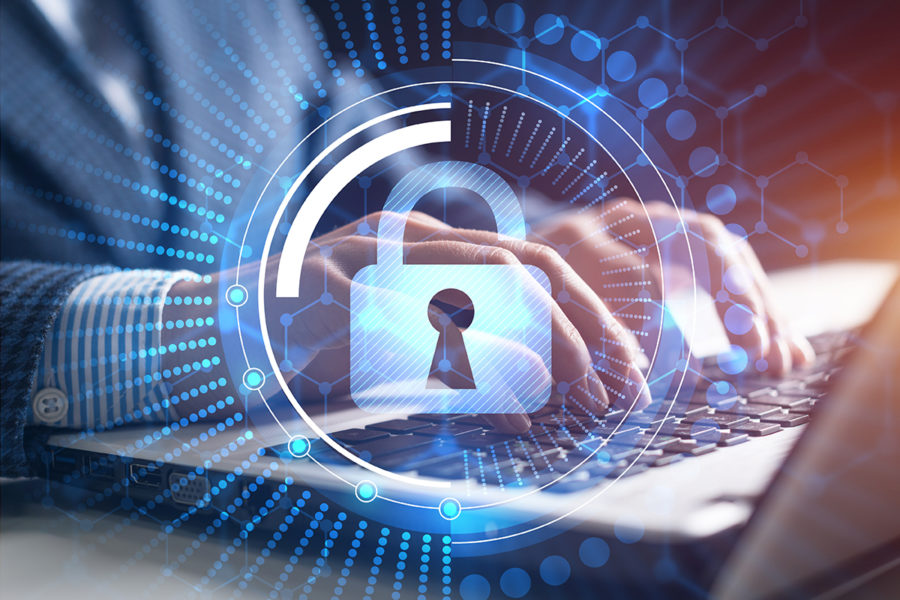
Digital cybersecurity and network protection concept. Virtual locking mechanism to access shared resources. Interactive virtual control screen with padlock. Businessman working at laptop on background
Cybersecurity is one of those subjects that, when we talk about it, many people nod knowingly yet do nothing about it. Why? Why do we always put it off? I can only surmise that we believe it’ll happen to the next person but not us. Yet accidents and unfortunate events happen to everyone. The first commandment of cybersecurity is simple: It starts with you.
My rules for essential cybersecurity are simple, inexpensive, and only require one element: that you actually implement them and don’t put it off until digital chaos takes over your personal computer or network.
The Basics
It’s inexpensive and mandatory. Invest in a reliable firewall and well-known anti-virus protection. Test both to make sure they are working. And test them at least monthly. If there is a Rule No. 1 in cybersecurity, this is it.
Back It Up and Remove It
OK, you’ve heard the need for backing up. But it’s actually a bit more demanding than what you hear. Back up every day to a reliable online service. Make this procedure automatic so that you don’t have to think about it. This is probably the No. 2 rule in cybersecurity. But online backup is insufficient. You want a hard copy backup, too, and don’t leave it in the same location as your main computer or network. Why? Things happen, including fire, theft, flood and any act, divine or otherwise, that can ruin the backup.
But there’s an even more important reason for a hard backup. If you become a victim of ransomware where your valuable data, including that online backup, turns into gibberish, you’ve got severe problems. (The online backup doesn’t know that the backup is infected, too.) An off-site, hard backup will provide “clean” data up until your last hard backup. You might lose days, even a week (yes, hard copy every day or at least every week), which will be a problem, but it is not a death sentence.
Password Protection
Here’s my two-decade mantra: Don’t choose obvious, everyday words and don’t use the same one for all your login passwords. A password that combines letters, numbers and symbols works best. Most important: Use two-factor authentication whenever possible. It’s simple, takes only an extra few seconds but significantly improves your security.
It’s My Sister’s Flash Drive
So? Be cautious about using anyone’s flash drive. Never use one until you’ve scanned it to ensure that it’s virus-free.
Hot Spot Convenience
Be wary of public Wi-Fi. Most people now have a smartphone, and you can enable it to act as your personal and secure internet connection. Public Wi-Fi raises the possibility that someone can hack into your system while you’re sipping that cappuccino.
Hard Drive Safeguards
Encrypt your hard drive. Newer operating systems offer default encryption, so there’s no excuse. Fortunately, the latest hard drives won’t slow down your computer, and if someone steals your laptop—your office—it’ll make it more difficult to tamper with your data.
Cyber Insurance (For Business Owners)
If you have a business, it’s probably the kind of coverage you want to buy. It will protect you against business liability if someone breaches your network and obtains access to your customer or client list. Talk to your insurance agent. Remember, general liability coverage generally does NOT cover cyber issues.

